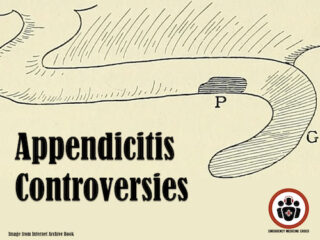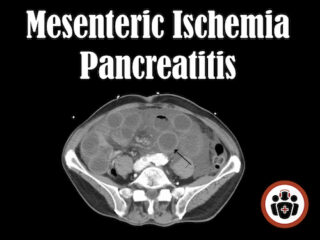emergency medicine gastroentrology education
Episode 89 – DOACs Part 2: Bleeding and Reversal Agents
In this Part 2, DOACs Bleeding and Reversal we discuss the management of bleeding in patients taking DOACs with minor risk bleeds, like epistaxis where local control is easy to access, moderate risk bleeds, like stable GI bleeds and high risk bleeds, like intracranial hemorrhage. We answer questions such as: How do we weigh the risks and benefits of stopping the DOAC? When is reversal of the DOAC is advised? How best do we accomplish the reversal of DOACs? Is there any good evidence for the newest reversal agent? When should we stop DOACs for different procedures, and when should we delay the procedure?









